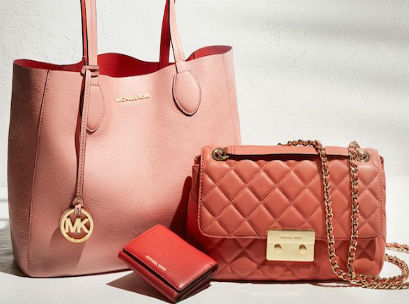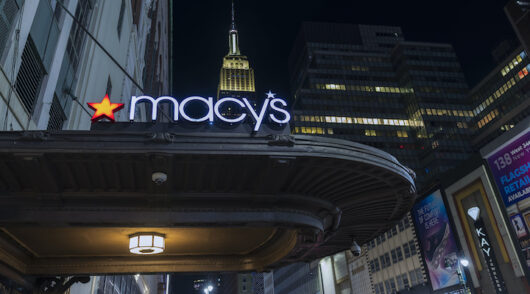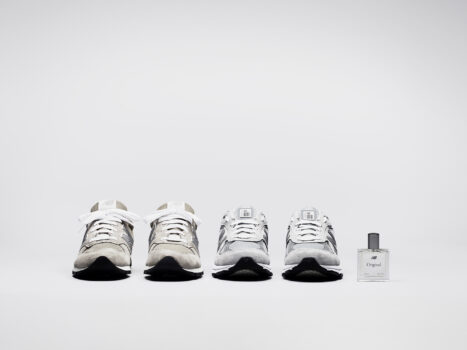 Luxury handbag retailer, Michael Kors, has posted strong quarterly results and has raised its full year outlook indicating the company is starting to see a lift from its turnaround efforts.
Luxury handbag retailer, Michael Kors, has posted strong quarterly results and has raised its full year outlook indicating the company is starting to see a lift from its turnaround efforts.
The global accessories retailer, which completed its acquisition of upmarket shoe brand Jimmy Choo last week, posted a 5.4 per cent increase in revenue to $1.15 billion for the second quarter ending September 30.
Retail net sales increased 8.0 per cent to $645 million driven in large part by the 56 net new store openings since the end of the second quarter of fiscal 2017, as well as the increase in e-commerce sales in Europe and Asia. Comparable sales decreased 1.8 per cent. On a constant currency basis, retail net sales increased 7.2 per cent, and comparable sales decreased 2.5 per cent. Wholesale net sales increased 2.5 per cent to $463.6 million.
Total revenue in the Americas increased 0.9 per cent to $751.9 million on a reported basis and increased 0.6 per cent on a constant currency basis. European revenue increased 9.2 per cent to $270.7 million on a reported basis, and increased 4.6 per cent on a constant currency basis. Revenue in Asia increased 30.4 per cent to $124.0 million on a reported basis, and increased 33.5 per cent on a constant currency basis.
John D. Idol, Michael Kors chairman and chief executive officer, said the company’s second quarter results were better than expected, adding that they are pleased with their continued progress executing their strategic plan, Runway 2020.
“The positive signs that we are seeing in our business illustrate that our efforts across product innovation, brand engagement and our customer experience are beginning to take hold,” Idol said. “While we continue to expect fiscal 2018 to be a transition year for the Michael Kors brand, ultimately we believe that these efforts will drive improved financial performance.”
For FY 2018, the company expects total revenue to be approximately $4.59 billion, including between $215 million and $225 million of incremental Jimmy Choo revenue. Comparable sales for the Michael Kors brand are expected to decline in the mid-single digits. The Company expects operating margin to be approximately 16.0 per cent. Diluted earnings per share are expected to be in the range of $3.85 to $3.95, including the anticipated dilution from Jimmy Choo of approximately $0.08. This assumes approximately 156 million weighted average diluted shares outstanding and a tax rate of approximately 17.0 per cent.
According to Neil Saunders, managing director of GlobalData Retail, Michael Kors has been on a long journey of reinvention, but the company’s latest numbers suggest the brand is starting to reach its destination of reestablishing itself as a well-regarded premium player.
“The sales line bears witness to this, with revenue in most regions and divisions up over the prior year,” Saunders said. “Perhaps this isn’t surprising given the very soft comparatives from 2016, but this is the first time in over a year that sales in the Americas, for example, have grown – proof the company is clawing back some of the ground it has lost.”
Saunders said the process of rebuilding is undeniably gradual, and they believe that Michael Kors is not yet achieving the kind of momentum from which a brand like Coach is benefitting. The same-store sales numbers hint at this, he said, as while the -1.8 per cent decline is better than in previous quarters, it underlines the fact that Michael Kors still fails to pull in custom.
“In our view, one of the reasons for this is that Michael Kors is much more directional than a brand like Coach and, as such, its appeal is not as wide,” Saunders said. “The latest fall and winter collections are a case in point. While these contain some staple items like the Mercer handbag with its classic silhouette, they also feature edgy products like floral lace dresses and studded bomber jackets aimed at a more particular type of customer.”
He said this targeting is not wrong.
“Indeed, it is what a good brand needs to do,” Saunders added. “However, it limits growth and means that Michael Kors likely has more difficulty in connecting with customers across the country in a way that more middle-of-the-road Coach does not. That said, as Michael Kors widens its product range and becomes more of a lifestyle brand, we expect it to pick up more custom from consumers who will shop around the edges of the offer. This will help trade as the firm moves into 2018.”
Looking ahead, the addition of Jimmy Choo to the Michael Kors empire should add around $105 million of incremental revenue to next quarter’s sales line, Saunders said.
“As useful as this near-term benefit is, it is the longer-term objectives for the iconic shoe brand that are most interesting,” he said. “In our view, Michael Kors has a difficult balancing act between trying to expand its new addition and retain the exclusivity that is at the heart of its success. The aim of moving to $1 billion of revenue suggests an aggressive push to open new stores and expand e-commerce.”
Saunders said strategically, the decision to buy Jimmy Choo along with the latest collections, suggests that Michael Kors is looking to move into a more exclusive and distinct part of the luxury market.
“As much as we support this tactic, we caution that it means progress will remain slower than at other brands and that it will ultimately limit the size of the business,” he said.
Access exclusive analysis, locked news and reports with Inside Retail Weekly. Subscribe today and get our premium print publication delivered to your door every week.





